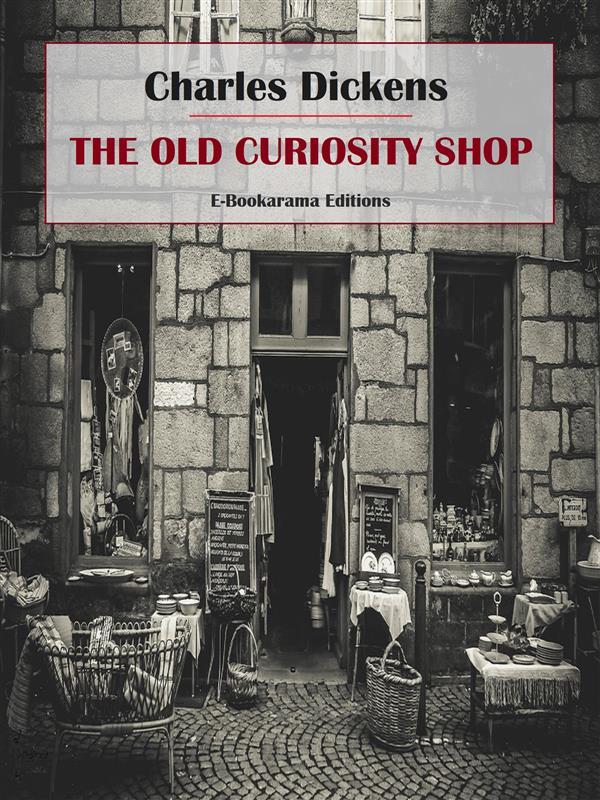
Sofort lieferbar (Download)
Charles Dickens's "The Old Curiosity Shop" was published in serial form from 1840 to 1841 in a periodical titled Master Humphrey's Clock. The novel caused a sensation at the time and the ending sparked pubic demonstrations against the author.
As a relatively early entry of Dickens's, "The Old Curiosity Shop" bridges his early work, such as "The Pickwick Papers", with his more familiar novels that he is remembered for today, including "A Tale of Two Cities" and "Great Expectations". In other words, we can look at "The Old Curiosity Shop" as a crucial step in Dickens's development as a writer.
Among its many significant achievements, including one of the most detestable villains in all of literature, the novel might best be remembered for its interesting experiments with narrative structure. This is the form that the story takes and the perspective from which it is told.
"The Old Curiosity Shop" is the story of Little Nell Trent and the evil dwarf Quilp. When Little Nell's grandfather gambles away his curiosity shop to his creditor Quilp, the girl and the old man flee London. Nell's friend Kit Nubbles and a mysterious Single Gentleman (who turns out to be the wealthy brother of Nell's grandfather) attempt to find them but are thwarted by Quilp. . .
As a relatively early entry of Dickens's, "The Old Curiosity Shop" bridges his early work, such as "The Pickwick Papers", with his more familiar novels that he is remembered for today, including "A Tale of Two Cities" and "Great Expectations". In other words, we can look at "The Old Curiosity Shop" as a crucial step in Dickens's development as a writer.
Among its many significant achievements, including one of the most detestable villains in all of literature, the novel might best be remembered for its interesting experiments with narrative structure. This is the form that the story takes and the perspective from which it is told.
"The Old Curiosity Shop" is the story of Little Nell Trent and the evil dwarf Quilp. When Little Nell's grandfather gambles away his curiosity shop to his creditor Quilp, the girl and the old man flee London. Nell's friend Kit Nubbles and a mysterious Single Gentleman (who turns out to be the wealthy brother of Nell's grandfather) attempt to find them but are thwarted by Quilp. . .
Produktdetails
Erscheinungsdatum
13. Dezember 2024
Sprache
englisch
Dateigröße
1,99 MB
Altersempfehlung
ab 13 Jahre
Autor/Autorin
Charles Dickens
Verlag/Hersteller
Kopierschutz
ohne Kopierschutz
Family Sharing
Ja
Produktart
EBOOK
Dateiformat
EPUB
ISBN
9788835328001
Entdecken Sie mehr
Bewertungen
0 Bewertungen
Es wurden noch keine Bewertungen abgegeben. Schreiben Sie die erste Bewertung zu "The Old Curiosity Shop" und helfen Sie damit anderen bei der Kaufentscheidung.









